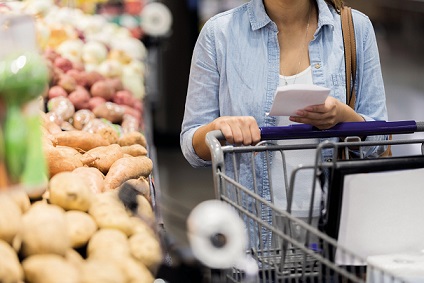Tetra Pak unveils how Covid-19 has made consumers rethink the way they live, and fundamentally shift how they act in the latest Tetra Pak Index report.
The pandemic has reinforced the value consumers place on human connections, taking into account both time spent with family at home, and with extended circles outside it. Shared food and beverage experiences play a key role in these relations.
Fundamentally, the personal, economic and environmental fragility experienced during the global pandemic has created a shift from concern to active caretaking, and a desire to take action to keep ourselves, our food, our communities and the planet secure. Food safety and security are top priorities too, with the pandemic shining a spotlight on health and highlighting weak points in our food systems. Worries about the environment are very strong, with pollution and plastic litter in the ocean as the joint top worries (83%) and Global warming closely follows, cited by over three quarters (78%) of consumers across nine countries. This sits ahead of food waste (77%) and food accessibility (71%). Meanwhile, nearly half (49%) of the global population are now recognising the impact that everyday choices have on the environment.
The lack of freedom and choice over the last 20 months has driven consumers to regain control and demand action to change the status quo, in whatever way possible. They are proactively looking for ways to make a difference in their own lives, in order to improve their own physical and mental wellbeing – such as through dietary choices – and in the environment around them, by recycling more and reducing waste. For example, 62% of consumers pay more attention to the quality of what they eat and drink, while 54% are throwing away less food now than before the pandemic. Notably, 72% agree that ‘individuals like me’ need to act now, or they will be failing future generations.
Consumers are also looking to businesses to lead the way and help them stabilise the new habits they form. Over one-third (35%) are more frequently choosing brands based on their sustainability credentials than before the pandemic, while one in two (50%) say being environmentally friendly is a top need for food packaging and 61% expect food and beverage companies to lead the way in finding solutions.
With more time being spent at home, the household waste “footprint” is more visible. In a bid to address this, consumers are adapting their routines. Over half (55%) are planning meals more carefully to avoid waste, while just under half (46%) are making a greater effort to sort materials such as cartons, glass and plastic properly for recycling since the pandemic. One in two (50%) also say they are likely to recycle more in the next year as part of their personal contribution to tackling climate change.
The pandemic has also made people more thoughtful, with greater empathy for others. They have a new appreciation for meaningful connections with friends and family and beyond – and shared food and beverage experiences often play a key role in making these connections enjoyable and fun.
“Together out of home” consumption occasions have experienced the highest increase since the start of the pandemic. Another is shopping locally and sourcing local products, demonstrating the growing link between the environment and society. Beyond immediate family and friends, there is also a concerted effort to rebuild societies, with nearly a third (32%) actively influencing their community to reduce waste.
Consumers are looking for ways to transition from fragility to resilience. In their own lives, this translates to improving their own physical and mental wellbeing, through their choice of diet and ingredients. Since the start of the pandemic, consumers have experienced sweeping, rapid change, and made many sacrifices. What is clearly here to stay is that consumers are taking actions in their own lives to build a more sustainable future and expecting companies to do the same – as well as helping them in this mission.
“Tetra Pak Index always talks about global trends, but this year’s report definitely resonates with what we can observe here in Thailand,” said Supanat Rattanadib, Marketing Director, Tetra Pak (Thailand) Limited. “The rise of traditional ‘back-to-basics’ lifestyles, including home cooking, eating with family and minimising waste, has created a shift from concern to active caretaking. Our behaviours are rewiring as a result of the pandemic, and we all are more willing to take environment, waste and health matters into our own hands.”

